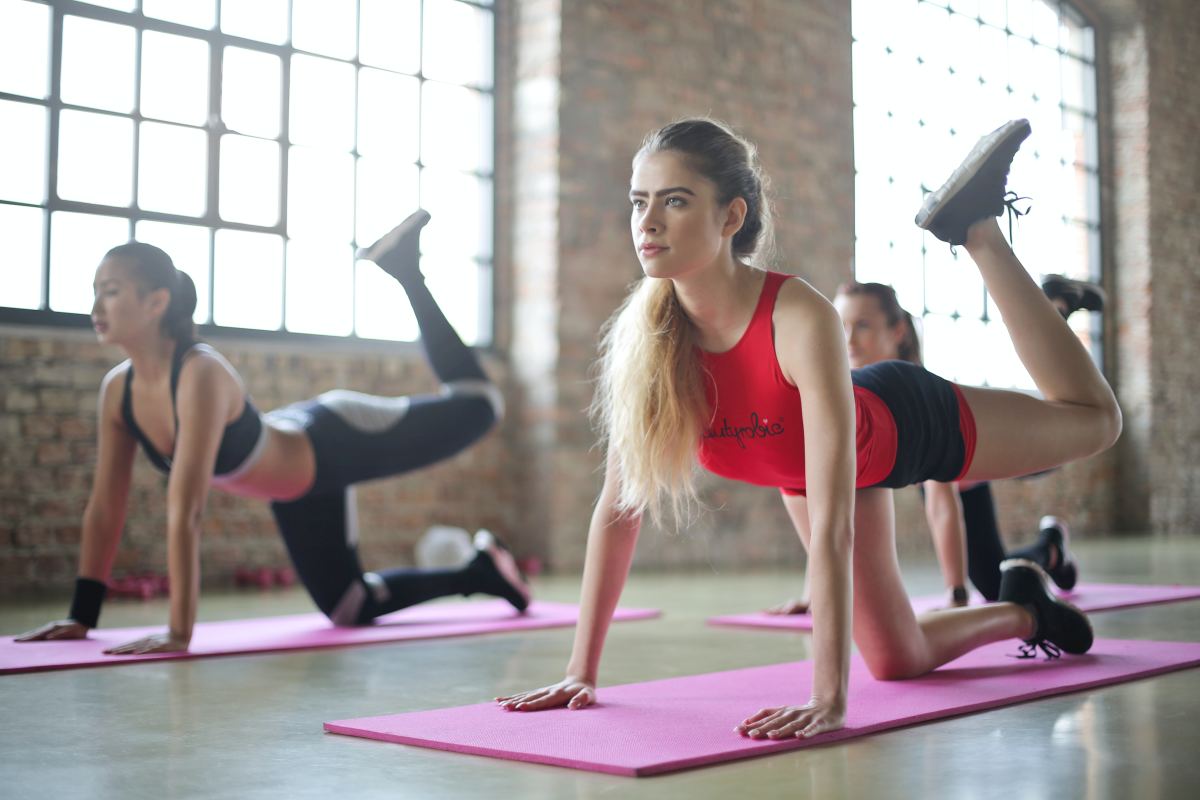Will Working Out Get Rid of Depression?
Look Good, Feel Strong, and Own Your Confidence: The Power of Daily Exercise
Let’s face it—everyone wants to look good, feel confident, and feel attractive in their own skin. And the truth is, daily exercise is one of the most powerful ways to unlock all of that. It’s not just about aesthetics (though slimming down and toning up are awesome bonuses). It’s about how you feel—physically, mentally, emotionally, and even spiritually.
Regular movement transforms you from the inside out.
Whether you’re lifting weights, taking long walks, dancing in your living room, or hitting a gym class with friends, committing to some form of daily physical activity offers a level of empowerment that’s hard to match. With every drop of sweat, you’re not just burning calories—you’re building strength, stamina, and resilience.
The Physical Perks: Strong, Fit, and Functioning for Life
On a physical level, consistent exercise helps you slim down, tone up, and maintain muscle mass as you age. This is especially important as metabolism slows and hormonal shifts start to affect your body composition. Lean muscle not only keeps you looking fit—it boosts your metabolism, supports bone health, and protects your joints from injury.
Regular exercise also helps preserve your range of motion. Whether you're reaching for something on a high shelf, squatting down to pick up a bag of groceries, or just trying to move freely without stiffness, staying active keeps your body functional. It helps lubricate your joints, improves balance, and strengthens the core muscles that support posture and coordination.
And then there's recovery—daily movement helps your body bounce back faster from both physical and emotional stress. You’ll sleep better, wake up with more energy, and feel like you’re actually in control of how your body functions. That’s priceless.
Mental and Emotional Gains: Clear, Calm, and Centered
The mental benefits of exercise are equally important. Working out reduces stress and anxiety by regulating hormones like cortisol and releasing feel-good chemicals like endorphins and dopamine. It improves focus, boosts memory, and can be a powerful tool in managing symptoms of depression.
There’s also a deep sense of accomplishment that comes with finishing a workout. You prove to yourself—again and again—that you’re capable, disciplined, and deserving of progress. That confidence spills over into every area of your life: your career, your relationships, your self-esteem.
A Spiritual Reconnection: Present, Grounded, and Grateful
Yes, there’s even a spiritual aspect to fitness. Movement can be a form of meditation in motion—a way to reconnect with your body and come back to the present moment. Whether it’s a peaceful walk, a challenging yoga session, or an intense weightlifting set, exercise grounds you in your body and reminds you of its incredible strength and potential.
In those quiet moments after a good sweat—when your heart is pounding, your breath is steadying, and your muscles are tingling—you often feel something more than just physical satisfaction. You feel alive. You feel grateful. You feel in tune with yourself.
Who Doesn’t Want to Look and Feel Good?
Let’s be honest: Who doesn’t want to feel strong, sexy, and unstoppable? We all want to walk into a room with confidence, to feel comfortable in our clothes, and to look in the mirror with pride. But that kind of confidence isn’t handed to you—it’s earned. And you earn it by showing up for yourself, day after day.
So don’t overthink it. Don’t wait for the perfect time, the perfect plan, or the perfect body. Start where you are, move how you can, and commit to the process. Even 20 minutes a day is enough to make a difference when you show up consistently.
Exercise isn’t just about looking good—it’s about living better.
So go ahead—move your body, fuel your spirit, and fall in love with the way you feel. You deserve it.
How Working Out Can Help Fight Depression—Naturally and Powerfully
Depression is more than just feeling sad. It can steal your motivation, drain your energy, cloud your thoughts, and make even the simplest tasks feel overwhelming. While therapy and medication are helpful (and sometimes essential), one of the most powerful and accessible tools for managing depression is often overlooked: exercise.
Yes—moving your body can change your mind. And not just a little. In many studies, regular physical activity has been shown to be just as effective as antidepressant medications in reducing symptoms of depression, especially in people with mild to moderate cases.
Here’s how it works—and why it matters.
1. Brain Chemistry: The Natural Boost
When you exercise, your brain releases powerful chemicals like endorphins, dopamine, serotonin, and norepinephrine—all of which play a role in mood regulation.
-
Endorphins act like natural painkillers and mood elevators, helping you feel good after physical exertion.
-
Dopamine is connected to motivation, pleasure, and reward—something that can feel depleted in people with depression.
-
Serotonin helps regulate mood, appetite, and sleep—all of which are often disrupted in depression.
The best part? You don’t have to train for a marathon to get the benefits. A brisk 20–30 minute walk, a short workout at home, or a dance session in your living room can be enough to trigger these brain chemicals and lift your mood, even temporarily.
2. Stress Relief and Emotional Reset
Exercise lowers cortisol, the stress hormone that runs high in many people with depression and anxiety. High cortisol levels can lead to poor sleep, low energy, irritability, and brain fog. When you move your body, you literally help “burn off” that stress and regulate your nervous system.
Regular workouts help you process emotions, clear your mind, and give you a break from rumination—the loop of negative thoughts that can be hard to stop. Physical activity helps quiet that mental noise and allows you to focus on the rhythm of your body and breath.
3. Structure and Accomplishment
Depression often disrupts your routine and steals your motivation. Exercise gives you something structured and positive to focus on. Even if it’s just 10 minutes, it’s a win—a small act of self-care that can build momentum.
Each time you complete a workout, you prove to yourself that you're capable. That sense of accomplishment builds self-esteem, which depression tends to erode. Over time, you begin to trust yourself again. You start feeling stronger—not just physically, but mentally.
4. Better Sleep and More Energy
Sleep and energy levels are often badly affected by depression. Some people sleep too much, while others struggle with insomnia. Exercise helps balance your circadian rhythms—making it easier to fall asleep and stay asleep.
And although it might sound counterintuitive, working out actually increases your energy over time. It improves blood flow, strengthens your heart, and helps your cells use oxygen more efficiently. The more consistently you move, the less fatigued you feel throughout the day.
5. A Sense of Control and Connection
One of the hardest parts of depression is the feeling of helplessness. Exercise gives you back a sense of control. It’s something you can choose, something you can do, even on days when everything else feels too hard.
Joining a class, walking with a friend, or simply being in a gym setting can also reduce feelings of isolation. Human connection—whether it’s eye contact, shared space, or encouragement—can help lift you out of your head and remind you that you’re not alone.
You Don’t Have to Start Big—Just Start
You don’t need fancy gear, a gym membership, or an intense routine. Start small. Take a walk. Stretch for 10 minutes. Try a gentle yoga video. The key is consistency, not intensity. Most videos are free on YouTube and you can do them in the privacy of your own home!
Even if your mind says, “I don’t feel like it,” give your body a chance to prove it wrong. The motivation may not come first—the movement does. And with movement comes change.
If you're struggling with depression, please know this: you are not broken, and you are not alone. Exercise is one of many tools that can help you heal—and it’s always within reach.
You’ve got this. One step, one rep, one breath at a time.
This content is accurate and true to the best of the author’s knowledge and is not meant to substitute for formal and individualized advice from a qualified professional.
© 2025 Rebecca








